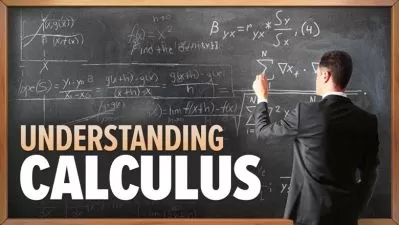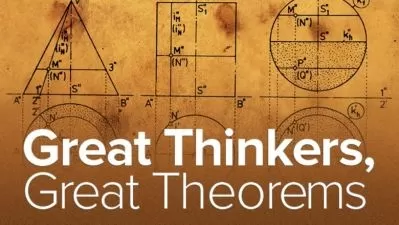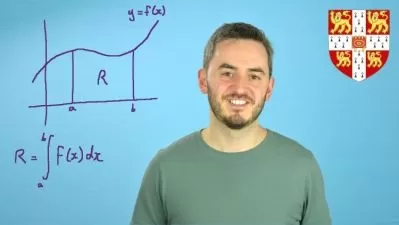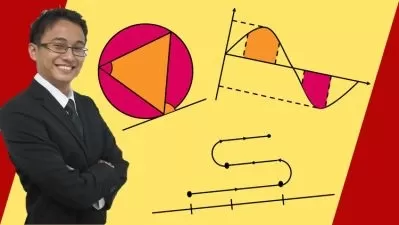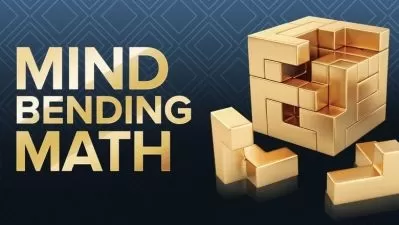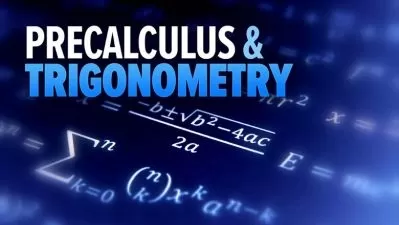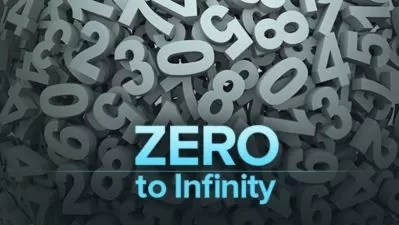The Mathematics of Everyday Life
Mohamed Omar
5:39:48
Description
What use is math? Obviously, it is supremely useful in science, engineering, and other technical fields. But what good is it in everyday life? That is the lament of countless high school and college students in required math courses, who would much rather be doing something directly relevant to their lives. But Professor Mohamed Omar of Harvey Mudd College believes that the math that practically all of us have been exposed to can be tapped to make our lives better in a multitude of ways, including:
- Designing a Diet: Most people who want to lose weight follow a ready-made diet. But the best results come from calculating our own metabolic rate, caloric intake, and weight-loss goal, then designing a custom plan that will produce results over the long term. Professor Omar knows this well, because he did it himself!
- Digging Out of Debt: Credit card debt can be ruinous, which is evident through a simple look at the mathematics of compound interest. An in-depth grasp of that math can help you get out of debt and navigate financial hazards that are far beyond the ability of online tools, such as debt repayment calculators.
- Choosing Insurance: From the insurer’s point of view, insurance is all about the mathematics of risk. The more you understand the math, the better off you are when buying life, health, and other kinds of insurance. Comparing different types of policies—for example, whole versus term life insurance—is another area where math is indispensable.
A master at converting the math phobic into the math enthusiast, Professor Omar covers a dozen areas of life, in The Mathematics of Everyday Life, where mathematics comes to the rescue. In 12 accessible half-hour lessons, he demonstrates how basic techniques such as algebra and geometry are the secret tools for making life run more smoothly. Requiring no background beyond high school mathematics, the course provides hands-on experience in the practicality of math, encouraging you to apply it whenever you encounter numbers and quantities.
Put the Tools of Math to Use
Professor Omar’s goal is “to empower you with the capability to do informed independent research that is mathematically sound.” Among the tools you use are:
- Algebra: The genius of algebra is that it allows you to find unknown values with the help of formulas that you can either look up or develop on your own. One way you can put algebra to work in your real life is by calculating when you need to start investing and how much you need to put aside each month in order to have a nest egg for retirement.
- Geometry: When you have to make a division of dissimilar assets, such as splitting an inheritance, geometry shows how to keep all recipients happy. Another surprising real-world use of geometry is creating gerrymandered voting districts that favor one political party over another, and so algebra can also be used to reveal when gerrymandering has been implemented.
- Statistics: Statistics can mislead as easily as inform. In discussing different options for medical treatments, a physician will often cite relative risks, which are statistics. Here, a little research into the details of the data can shed light on how significant the differences really are, leading to a better-informed decision.
Professor Omar also explains the role of statistics in setting insurance premiums, and you discover how to compile your own statistics to extract a surprising amount of information from relatively little data. He also introduces logarithms, which are a way to express very large numbers compactly. Professor Omar uses logarithms to explain Benford’s law, which is a property of real-life sets of data that allows fraudulently compiled figures to be detected, as in cases of embezzlement.
Dust Off Your Math Skills
The Mathematics of Everyday Life includes special tips for putting math to work for you, for example:
- Paying for College: Invest time and effort into scholarships and awards before you consider borrowing. Think of this search as a part-time job with a potentially massive pay off, freeing up your income when you are a young post-graduate. That early career money has the potential to catapult wealth because of the decades you have to invest.
- City or Suburb: When deciding where to live, factor in the cost of commuting, which can be substantial over a period of years. In addition to wear and tear on a vehicle, there is the opportunity cost of the time spent driving—not to mention the environmental toll and psychological strain.
- Units Matter: If you are unsure what a measurement means, focus on the units. For example, BMI—body mass index—sounds like an obesity indicator. But it simply measures weight divided by the square of the height. These numbers can vary for reasons having nothing to do with being overweight.
Looking beyond personal benefits, this course highlights steps you can take to reduce your carbon footprint. Here, the problem may seem overwhelming. But math once again comes to the rescue, allowing you to calculate the relative impact of your power consumption, automobile use, and air travel, as well as the mitigating effects of measures like recycling. It turns out that some activities have outsize repercussions for the environment. Focusing on reducing those makes the most sense.
Everyone uses tools for some task or another, whether for hammering nails, digging a garden, cooking a meal, or shopping online. Mathematics is one such tool—possibly the most powerful and versatile ever developed. The Mathematics of Everyday Life is your unparalleled guide to dusting this tool off, reviewing the instructions, and putting it to use!
More details
User Reviews
Rating
Mohamed Omar
Instructor's CoursesMohamed Omar is an Associate Professor of Mathematics and the Joseph B. Platt Chair in Effective Teaching at Harvey Mudd College. He earned his bachelor’s and master’s degrees in Mathematics from the University of Waterloo and his PhD in Mathematics from the University of California, Davis. Before arriving at Harvey Mudd College, he was a postdoctoral fellow at the California Institute of Technology.
Mohamed’s mission is to change the world from math-phobic to math-loving, and he has fiercely devoted his life to inclusion in mathematics. In 2018, he won the Mathematical Association of America’s Henry L. Alder Award, an early-career undergraduate teaching award given to no more than three educators annually. He has been featured in Forbes and Scientific American, and he is the author of more than 30 peer-reviewed articles in internationally recognized journals in his research specialty, applications of algebra to discrete mathematics.

The Great Courses
View courses The Great Courses- language english
- Training sessions 13
- duration 5:39:48
- English subtitles has
- Release Date 2023/08/20






